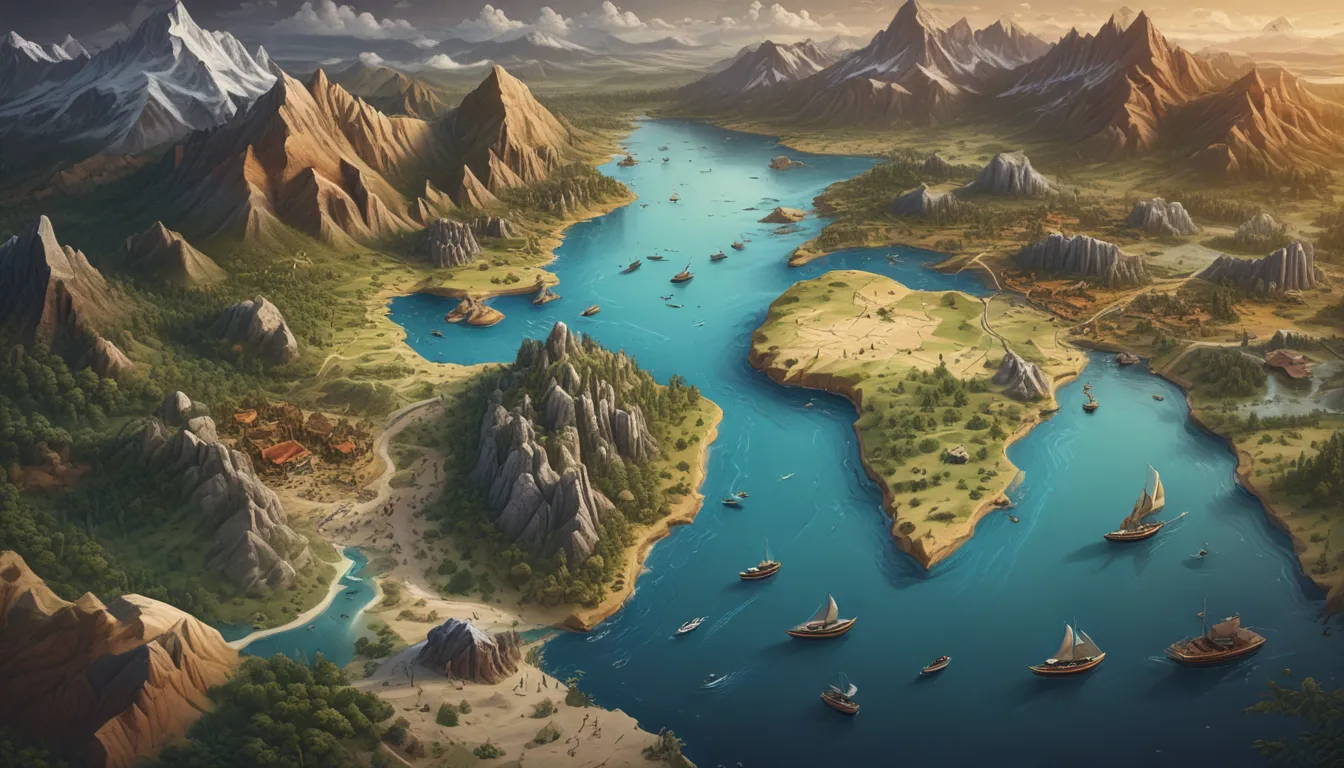A Note About Images: The images used in our articles are for illustration purposes only and may not exactly match the content. They are meant to engage readers, but the text should be relied upon for accurate information.
Welcome to the world of human geography, a captivating field that unravels the intricate relationship between people and their surroundings. From the dynamics of population distribution to the complexities of urbanization, human geography offers a unique lens through which we can examine the ever-evolving planet we call home.
Understanding Human Geography
Human geography is a branch of geography that delves into the ways in which human activities interact with and shape the physical environment. By studying various aspects such as population patterns, cultural landscapes, and migration trends, we gain valuable insights into the diverse ways in which societies function and evolve.
The Study of Population Patterns and Demographics
Population patterns and demographics are fundamental areas of interest in human geography. By analyzing factors like birth rates, death rates, and migration patterns, researchers can unravel the complexities of how populations change over time and the implications of these changes on societies.
Urban Geography: Cities and Beyond
Urban geography, a subfield of human geography, focuses on the study of cities and their development. By exploring social, economic, and environmental implications of urbanization, researchers gain a deeper understanding of urban planning, transportation systems, and the spatial distribution of activities within cities.
The Impact of Culture on Geography
Cultural geography is a vital component of human geography, shedding light on how culture both shapes and is shaped by geographical factors. Through examining language, religion, customs, and the effects of globalization on cultural diversity, researchers can gain a deeper appreciation for the rich tapestry of human societies.
Globalization and Local Communities
Globalization has significantly influenced how people interact with their environment. Human geography explores the impact of global flows of goods, services, information, and people on local communities, shedding light on the cultural, social, and economic implications of an interconnected world.
Society, Environment, and Sustainable Development
Human geography recognizes the deep interconnection between human activities and the environment. By investigating issues such as climate change, resource depletion, and environmental degradation, researchers can explore strategies for sustainable development that balance societal needs with environmental conservation.
Exploring Political Geography
Political geography is another important subfield within human geography, focusing on the spatial distribution of political systems, boundaries, and territories. By analyzing how political processes influence spatial organization and regional relationships, researchers gain valuable insights into the dynamics of governance.
Uncovering Spatial Disparities and Inequalities
Human geography sheds light on the disparities and inequalities that exist between regions and communities. By examining factors like socio-economic status, resource access, and power structures, researchers can work towards creating more equitable societies that address the spatial dimensions of inequality.
Embracing the Complexity of Human Geography
In conclusion, human geography plays a crucial role in unraveling the complex interactions between human societies and their environment. Through the study of population dynamics, culture, urbanization, globalization, and socio-economic and political dynamics, human geography provides valuable insights into the challenges and opportunities facing our world today.
Frequently Asked Questions
Q: What is human geography?
A: Human geography is a social science discipline that focuses on studying human activities, interactions, and their relationship with the environment.
Q: Why is human geography important?
A: Human geography helps us understand the spatial distribution of societies, cultures, and economic activities, providing insights into social, economic, and political issues crucial for effective policy-making and sustainable development.
Q: What are some subfields of human geography?
A: Subfields of human geography include urban geography, cultural geography, economic geography, political geography, and population geography.
Q: How does human geography affect urbanization?
A: Human geography plays a vital role in understanding urbanization patterns and processes by exploring factors contributing to city growth and their impact on the environment and society.
Q: How does human geography explain cultural diversity?
A: Human geography examines cultural practices, traditions, beliefs, their origins, distribution, and diffusion across regions, helping us understand the diversity of cultures and the interaction between culture and the environment.
As we continue on this journey of exploration and discovery, let’s embrace the complexities of human geography and the valuable insights it provides into the dynamic relationship between human societies and the world around us. Join us in uncovering the hidden treasures of our planet through the lens of human geography.






